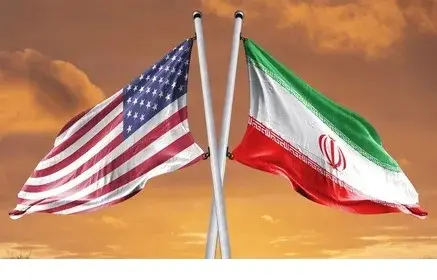In a major move, the U.S. government has slapped sanctions on multiple individuals and companies, accusing them of using cryptocurrency to funnel over $100 million from Iranian oil sales to support Tehran’s government and military operations. The move is part of a wider campaign to crack down on how Iran uses digital funds to dodge international sanctions.
🔍 Who’s Being Targeted
The U.S. Treasury has named two Iranian financiers — Alireza Derakhshan and Arash Estaki Alivand — as key players in the scheme. They are accused of facilitating the purchase and transfer of cryptocurrency derived from selling Iranian oil.
Alongside them, more than a dozen others are included: firms and individuals based in Hong Kong and the United Arab Emirates. Many of these operate through front companies and a network of so-called “shadow banking” tactics to disguise where the money is coming from and where it ends up.
💡 What the Accusations Say
The U.S. Treasury claims the following:
The funds in question came from sales of Iranian oil. Instead of moving money through traditional banking systems, which are under close watch, the sanctioned parties allegedly converted proceeds into cryptocurrency.
By using front companies overseas, they transferred these crypto funds back to entities in Iran — including accounts tied to its military and government.
These operations are said to be part of a broader pattern of evasion, using both legal loopholes and less regulated financial mechanisms to avoid detection.
⚙️ Legal Basis & U.S. Goals
To justify these sanctions, the U.S. used a Trump-era executive order that aims to pressure Iran economically by reducing its oil exports to zero and preventing it from acquiring nuclear weapons.
The sanctions do several things:
Freeze property and financial assets held in the U.S. by the individuals and companies involved.
Prohibit U.S. citizens and businesses from engaging in transactions with the sanctioned parties.
Signal to international banks, crypto exchanges, and related entities that doing business with these networks carries risk.
One U.S. Treasury official emphasized that the government is determined to disrupt financial flows used to fund Tehran’s weapons programs and other activities deemed “malign” by U.S. foreign policy.
🕵️ Wider Context: Why This Matters
Crypto as a loophole: Countries under sanctions have increasingly turned to cryptocurrencies to move money. Digital assets are harder to trace than traditional bank wires, especially when mixed with complex transactions across borders.
Shadow banking & front companies: These networks make it difficult to see who really controls or benefits from the money flows, which complicates enforcement and accountability.
International efforts to reimpose penalties: The U.S. isn’t alone. Other countries (including European powers) have expressed concern about Iran’s moves in violating or circumventing nuclear deal terms and other treaties. There’s a broader push to snap back UN sanctions when violations are detected.
Scale of illicit crypto activity: Crypto-tracking firms have estimated that a large share of global illicit cryptocurrency flows are tied to sanctioned nations or entities. For example, Iran is reported to have received billions in crypto in recent years under such suspicious or opaque circumstances.
🔭 What to Watch Next
Here’s what to keep an eye on now that the U.S. has made this move:
Enforcement — Will other countries, especially where the front companies are based, cooperate? If those firms continue to operate freely in places like Hong Kong or the UAE, the sanctions may have only limited effect.
Reactions from Iran — Iran is likely to protest. It may try to shift operations further underground or relocate parts of the network. There could also be diplomatic or retaliatory steps.
Crypto industry response — Exchanges, wallet providers, and others may tighten their compliance, demanding more transparency from clients about the origin of funds, especially for large transactions.
Impact on Iran’s economics — If these financial flows are indeed material to supporting military or government needs, cutting off access could affect Iran’s capacity to finance certain operations or reduce its diplomatic leverage.
Legal and diplomatic developments — Watch for court challenges or further sanctions, possibly tied to new evidence. Also, whether multilateral cooperation strengthens to enforce similar measures globally.

Comments 0
No comments yet. Be the first to share your thoughts!
Leave a comment
Share your thoughts. Your email will not be published.